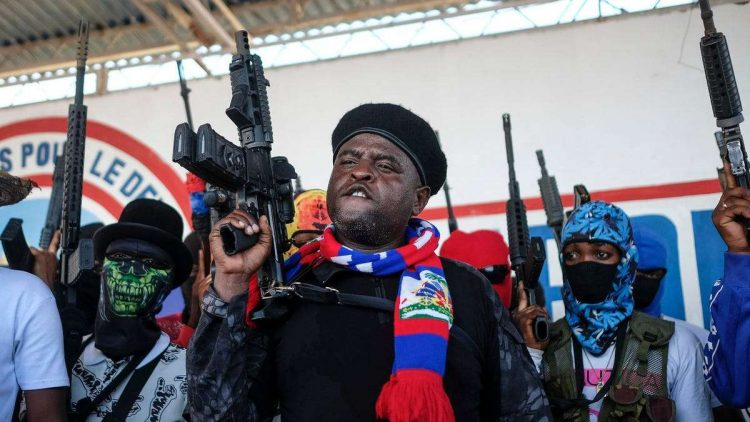
By Pedro M. Otero Cabañas
The impoverished and forgotten Haiti seems lost in an increasingly dark labyrinth that appears to have no way out.
After the assassination of President Jovenel Moïse, in July 2021, in circumstances that are still unclear, the long-suffering Caribbean country entered a spiral of violence that has plunged it into one of the worst crises.
humanitarian aspects of its history, in which extreme violence, misery and a virtually collapsed health system are mixed.
And it is not that before these events the Caribbean nation was a model of society. It is enough to remember the more than 30 years of Duvalierist dictatorship and the existence of paramilitary groups supported by the leadership, such as the Tonton Macoutes and Los Leopards, which despoiled the nation and implanted a terror that still survives in new generations.
In this scenario of death and desolation, dozens of uncontrolled armed groups are growing today, swarming throughout almost the entire country, but especially in Port-au-Prince, the capital, imposing the most brutal terror, looting and murders.
I remind you that the acting Prime Minister Ariel Henry, who had assumed the government after the death of Moïse, resigned forced by the gangs and today Haiti does not have a formal government, despite having a government council, but without effective power and almost zero impact on the country's problems.
This council, in an action almost of last will, announced the extension for seven days of the curfew in the Western department of the capital.
In this dystopia, last week two American missionaries and a Haitian were murdered by gang groups who attacked an orphanage in the north of the capital of Haiti, an area under their control.
Two of them were known to be the daughter and son-in-law of Missouri state legislator Ben Baker. Both were in Haiti exercising their ministry.
The Special Representative of the Secretary General for Haiti, María Isabel Salvador, said that “it is impossible to exaggerate the increase in gang activity in Port-au-Prince and beyond, the deterioration of the human rights situation and the deepening humanitarian crisis. ”
The UN assured that due to violence, 2,500 people died in that Caribbean country in the first three months of the year, including 82 children. Almost half of the victims were hit by bullets during violent attacks on their neighborhoods or clashes between gangs and police.
During the same period, at least 438 people were kidnapped for ransom. UN data indicate that some 362,000 Haitians – half of them children – have been forced to flee their homes for this reason.
Hopes for a near improvement in the situation in Haiti are now pinned on a multinational security support mission, led by Kenya, and approved by the UN. The mission should arrive in June.
Jake Johnston, an economist and writer at the Center for Economic and Policy Research in Washington, D.C., argues that Haiti's complicated situation is the consequence of a series of failed military and humanitarian aid interventions.
For him, the policies implemented by foreign actors such as the US and the United Nations, with the help of a “local elite”, displaced the Haitian State, leaving the country in continued instability.
For his part, Kenyan President William Ruto emphasized that Haitians were “suffering immensely from the bitter legacy of slavery, colonialism, sabotage and abandonment,” and that addressing the situation there was the “ultimate test of international solidarity and collective action.”

